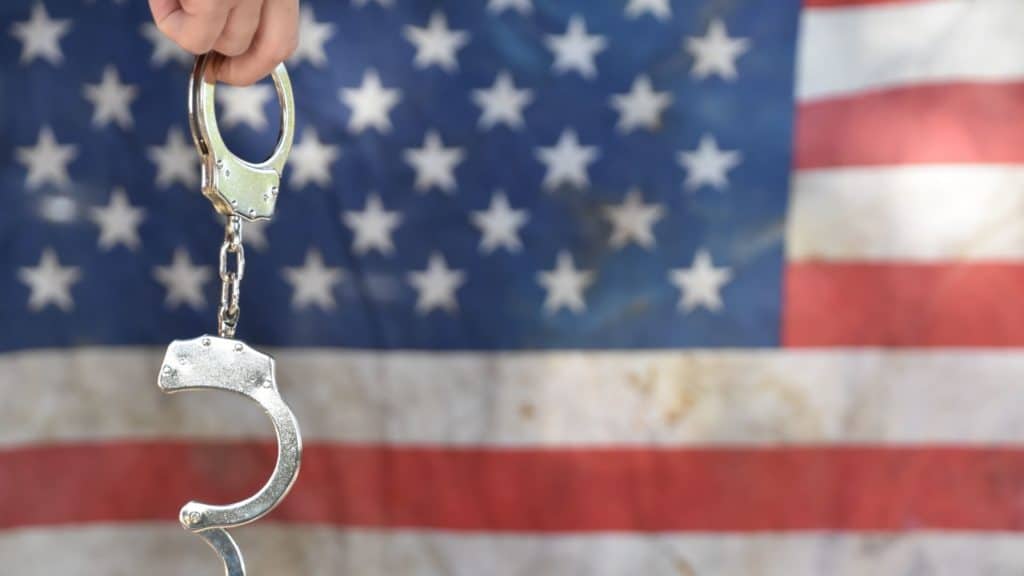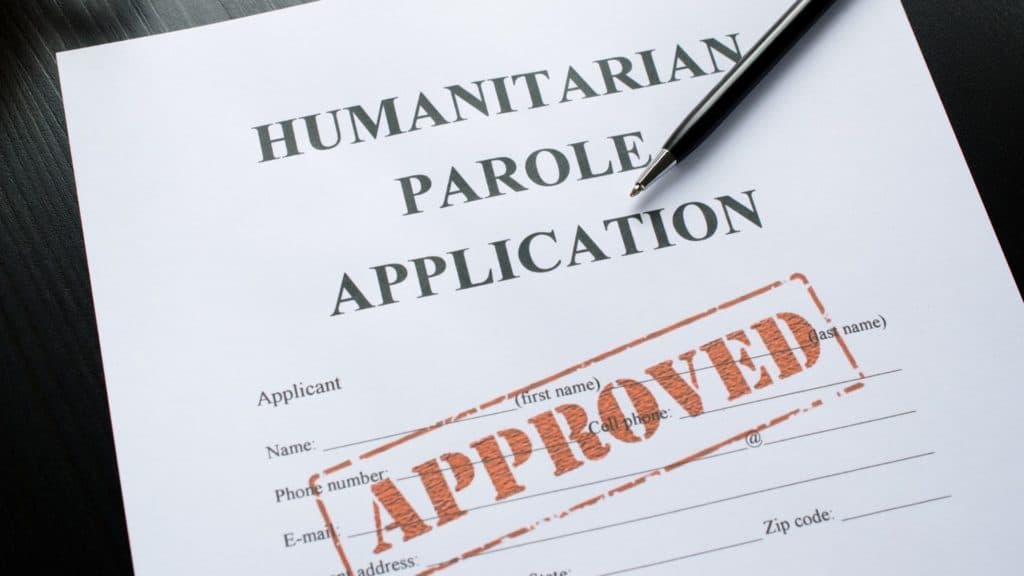Parole provides a prisoner the chance to transition smoothly back into regular society.
Parolee restrictions incentivize proper behavior after imprisonment.
These rules and regulations not only promote good behavior, but they lay a foundation for a productive life after incarceration.
Parole also plays a critical role in preventing overcrowding in prisons and rising costs in maintaining massive prison populations.
This article discusses all you need to know about parole, the parties involved, the process, and overall eligibility.
Contents
What is Parole?

Parole is a component within the penal system that enables prisoners to return to society and resume their life, under certain conditions.
This society reentry comes with a set of conditions and designated supervision.
Someone who goes through the parole process still technically serves their sentence, but they live life within a free society.
The rules that govern parole will vary by state.
Parole limitations also depend on the parolee’s behavior, the severity of the initial defense, and other information related to criminal history.
Who is Involved?
Throughout the parole system, there are a few critical parties that facilitate and make up the process: the court, parolee, parole officer, and parole board.
1. Court
The court impacts the parole process in a few different ways.
First, it sets the parole eligibility date at initial sentencing.
Once the eligibility date arrives, the judge evaluates whether the incarcerated person can go before a parole board eligibility.
If the judge deems proper behavior in prison and good standing, the parolee then goes before the board for the final decision.
The court also gets involved when there is a parole violation.
When a parolee fails to abide by the conditions, he or she will need to appear at a hearing.
The final decision-maker could be all or part of the parole board, as well as the judge.
2. Parolee
The parolee is the prisoner and person under question throughout the parole process.
Once the incarcerated person fulfills a set percentage of the term, the parolee will go before the parole board to get evaluated by the parole board.
This decision determines if the parolee is eligible and safe to return to society.
Parole Officer
A parole officer conducts various responsibilities in handling parole.
First, the officer assists in the reintroduction into society.
The other responsibilities include overseeing the parolee’s activities to make sure there is compliance
A parole officer’s duties are split into three categories: rehabilitative, supervisory, and release.
- Pre-release – the parole officer meets with the convict during incarceration by conducting interviews and other valuations (the prison or department of corrections will often supervise these meetings for conditional release)
- Supervisory – these activities involve monitoring the parolee’s activities to reduce public safety risks
- Rehabilitative – parole officers play a critical role in connecting the parolee with resources that help them transition smoothly back into society, including alcohol and drug treatment, employment assistance, and mental health services
Parole Board
A parole board consists of a panel of participants who choose whether a prisoner should get released from incarceration.
This collection of individuals typically does not make parole decisions until the parolee serves a minimum part of their initial sentence.
Parole boards exist in various jurisdictions, including the United States, United Kingdom, and New Zealand.
The people who make up the parole board are qualified to exercise judgment on a prisoner deemed fit to return to society.
These parole board members could be doctors, psychiatrists, criminologists, or judges.
Some locations do not have strict qualifications for parole board membership.
However, a universal rule is that the person should be in optimal moral standing.
Parole Eligibility

The big question is what determines the exact time at which parole eligibility starts.
Although an eligibility date could be approaching, it does not always mean the prisoner will be out of incarceration.
The prisoner does not automatically earn parole after a specific time in prison or correctional facilities.
But, obtaining eligibility is the first step toward achieving that goal.
Parole eligibility is different by state because an individual jurisdiction ultimately decides when the prisoner is eligible.
The parole board will consider eligibility after the prisoner serves a substantial amount of time in prison.
Apart from sentence length, there are a few factors that go into the final decision on parole eligibility.
These variables include:
- The specific kind of offense
- Whether the offense is a repeat felony or first offense
- If the case involves multiple felonies, the amount of time between the incidents
Another crucial component of parole eligibility is the prisoner’s conduct while in incarceration.
In states like Colorado, a prisoner can earn eligibility earlier for exhibiting exemplary behavior in prison.
On the other hand, prisoner misbehavior can postpone the parole eligibility or release date.
Bad behavior can also lower the possibility of parole happening.
Conditions of Parole
If a parolee abides by a specific set of conditions, he or she can almost enjoy freedom.
Several of these common parole conditions include any of the following:
- Avoid any contact or interpersonal communication with criminals or victims
- Stay away from criminal happenings altogether
- Maintain a residence and employment
- Avoid drug and alcohol use, or substance abuse
- Cannot depart from a designated geographical location without approval from the parole officer
For most parole systems, the parolee matches up with a specific parole officer.
The parolee and parole officer are obligated to periodically meet and conduct review sessions.
Parole officers also retain the right to make uninvited visits to the parolee’s residence to ensure compliance with conditions.
These unannounced trips allow the officer to check if the parolee is violating conditions like drug use.
The parole rules outlined above are an example of general conditions.
There could be specific parole conditions that differ by case.
These conditions could cater toward the offender to better incentivize the person to get back on track.
The Parole Process
The parole process goes through a series of involved steps.
First, the judge evaluates and determines the parole eligibility for the prisoner.
Before the case continues, the incarcerated person must gain eligibility.
After the judge grants eligibility to the prisoner, the person will then stand before a parole board.
The parole board adheres to a standard process to decide on the early release of a prisoner.
It will ask the parolee questions that show how safe the parolee will be in a free society.
Throughout this meeting, the board will evaluate the following things:
- Statements from the victim
- The chance of the prisoner making the same offense again
- The engagement and participation within the treatment
- The prisoner’s overall behavior and conduct while serving time
- Other factors at the board’s discretion
After the board considers all angles and factors, the incarcerated person is either accepted or denied.
If the inmate gets accepted, he or she must keep in consistent communication with the parole officer.
Types of Parole
The different kinds of parole differ by federal, state, and local systems.
Three of the parole types include mandatory, discretionary, and expiratory.
Mandatory parole is also called the “good time” system.
Under this type of parole, the legal system rewards the incarcerated person with time subtracted from the sentence.
After the person fulfills the entire sentence, factoring in the days off, the inmate can then get freed via parole.
Discretionary parole is when the parolee appears in front of the parole board to get his or her case evaluated.
As mentioned earlier, the final decision is under the discretion of the board and its members.
Parole boards will offer discretionary parole to inmates who showcase good behavior in prison.
Lastly, expiatory parole is when the prisoner completes the prison sentence behind bars with no time granted for “good time.”
In this instance, the inmate will receive expiatory parole.
Parole vs. Probation
Although parole and probation are interchanged frequently, they each represent different processes and punishments.
A criminal on probation is supervised by the court and must comply with a more stringent set of roles through the term.
If parolees violate these strict probation rules, they will go back to doing time behind bars.
Parole is a conditional prison release and is coordinated by the specific correctional system belonging to the state.
When a defendant receives sentencing, there is usually an opportunity for parole.
After the prisoner serves a designated duration of the total sentence, he or she can go before a parole board and get evaluated.
Frequently Asked Questions
Is parole the same in every state?
State parole will vary depending on where you live.
Some states have eliminated parole completely.
Minnesota, for example, got rid of the term “parole.”
It established a new system where prisoners do two-thirds of their designated prison sentence within incarceration.
The other third is completed on “supervised release.”
What kind of employment can a parolee get?
Parolees are required to find any legitimate job, whether it is part-time or full-time work.
It is usually preferred that the job involves staying at one location, rather than traveling.
Are parole and probation the same?
No, probation and parole are not interchangeable.
Probation is a supervisory period in the community outlined by the court.
Probation is considered an alternative to serving in prison.
On the other hand, parole involves the prisoner’s release into the community after completion of a prison sentence.
What happens if the parolee violates parole?
If the parolee disobeys the conditions set forth by the court, then the probation officer is responsible for reporting to the commission or parole office.
The commissioner of the parole board will then decide the appropriate punishment or sanctions for the parolee.
These repercussions could include a summons or arrest warrant for the parolee to be present for a parole hearing.
Final Wrap Up
Parole can be a complex process because of the different state laws and policies.
As you begin the parole process, you want to feel 100% confident in your rights and limitations.
If you have any questions about supervised release or parole, you should decide on consulting with a quality defense attorney.
This professional is highly aware of the system and can guide you through the process.



Awesome blog! Very accurate and helped my brother understand his parole, thank you and keep up the great work.